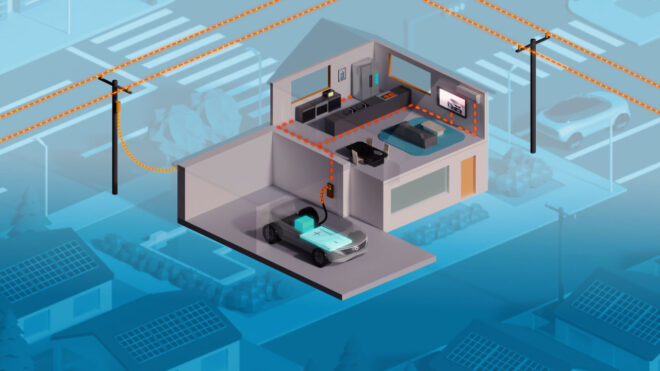Nissan, one of the world’s largest automobile companies, will launch Vehicle To Grid (V2G) technology from 2026.
The detailed statement from the company on this subject was as follows: “Nissan has announced that it will introduce affordable bi-directional in-car charging in selected electric vehicles from 2026. This initiative represents an important step towards Nissan’s vision of creating a sustainable energy ecosystem. The project reinforces Nissan’s commitment to deliver differentiated innovation and create new revenue streams that enable the electric vehicle transition, as set out in Nissan’s business plan, The Arc. It also supports Ambition 2030, the company’s long-term vision to create a cleaner, safer and more inclusive world. Vehicle-to-Grid (V2G) technology, which allows electric vehicle owners to use the electricity stored in their vehicle’s battery to power their homes or sell it back to electricity grid providers, will be launched first in the UK, with other markets in Europe to follow.
YOU MAY BE INTERESTED IN
The project is supported by Nissan’s extensive experience in the V2G field, with nearly 40 pilot projects carried out worldwide over the last decade. Nissan has become the first car company to achieve G99 Grid code certification with an AC-based solution required to electrify the UK national energy supply. Founded under the banner of Nissan Energy, the company’s aim will be to expand V2G technology in markets in Europe and beyond, empowering consumers with AC or DC-based V2G solutions in accordance with local infrastructure and legal requirements. Benefits of vehicle-to-grid technology Customers will be able to reduce the annual cost of powering an EV by 50% using Nissan’s built-in bi-directional V2G technology. The same technology could also reduce net CO2 emissions from charging by 30% per year per electric vehicle for the average household.
Electric vehicles equipped with V2G technology will be able to play an important role in integrating renewable energy sources into the energy supply and increasing its mix by reducing dependence on fossil fuels by storing electricity generated from wind or solar energy and directing it back to the grid when necessary. This is one of the bi-directional systems that Nissan plans to offer. and certified in the UK, this AC-bi-directional system will utilize an integrated on-board charger to provide a lower cost of entry, making the technology accessible to more people.
Nissan aims to offer the AC bidirectional charger at a price comparable to the unidirectional charger available today. In addition to reducing the cost of entry, Nissan’s V2G system will give customers full control and flexibility over their energy via a dedicated App. The University of Nottingham also played a key role in the project, providing a base of operations at Creative Energy Homes on campus and supporting academic research.
Nissan continues to work with these and other partners to achieve the necessary network certification in other markets, develop a seamless user experience and expand the availability of the technology to more customers. “Nissan’s project, which consists of sustainably produced electric vehicles that deliver zero-emission driving, are charged using clean energy and can power the home as well as the grid, forms part of its strategy to create a fully integrated energy ecosystem.”
